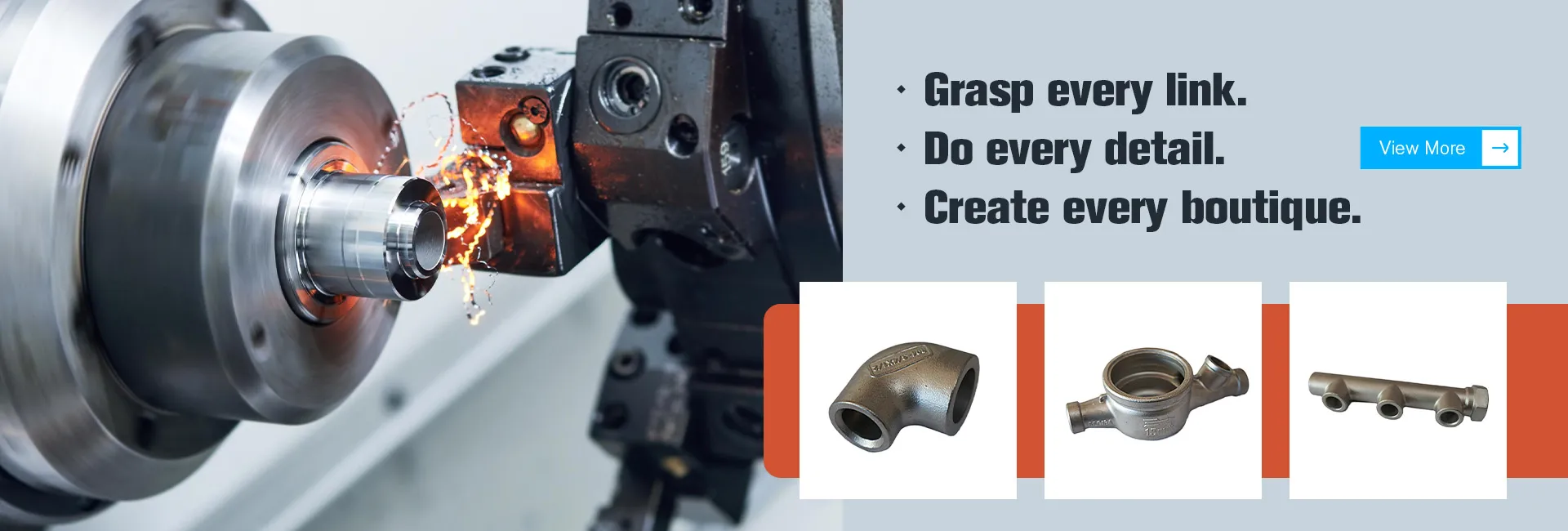precision casting molds
Precision Casting Molds Crafting the Future of Manufacturing
Precision casting is a pivotal technique in the manufacturing industry, widely employed across various sectors due to its ability to produce high-quality components with intricate designs. Central to this process are precision casting molds, which serve as the foundation for creating detailed metal parts that meet the exact specifications required by modern engineering applications.
What is Precision Casting?
Precision casting, often referred to as investment casting or lost-wax casting, involves creating a wax model of a part, which is then coated with a refractory material to form a mold. Once the material hardens, the wax is melted away, leaving a cavity that mirrors the intricate details of the original model. Metal is then poured into this cavity, allowing for the creation of complex shapes that would be difficult or impossible to achieve through traditional manufacturing methods.
This technique is particularly valued in industries such as aerospace, automotive, and medical devices, where precision and reliability of components are crucial. The use of precision casting molds allows manufacturers to produce parts with minimal material waste and reduced production costs while maintaining superior tolerances.
The Importance of Precision Casting Molds
Precision casting molds are essential for ensuring the accuracy and quality of the final product. The design and construction of these molds play a critical role in determining the success of the casting process.
1. Design Flexibility One of the primary advantages of precision casting molds is their ability to accommodate complex geometries. Unlike other manufacturing processes that may require multiple components to be assembled, precision casting can produce a single piece with intricate features. This capability not only simplifies assembly but also enhances the mechanical strength and integrity of the final product.
precision casting molds

2. Material Selection The choice of materials for precision casting molds is vital. They must withstand high temperatures and harsh conditions during the casting process without distorting or failing. Common materials used for mold production include ceramics, metals, and high-temperature alloys, each selected based on the specific requirements of the part being produced.
3. Surface Finish and Tolerances Precision molds can achieve exceptional surface finishes and tolerances, often eliminating the need for extensive post-processing. This characteristic is particularly beneficial in industries where dimensional accuracy is paramount, such as aerospace and medical sectors.
4. Cost Efficiency While the initial investment in precision casting molds can be substantial, the long-term savings are considerable. By producing parts with fewer defects and less need for machining, manufacturers can reduce overall production times and costs. Additionally, the longevity of high-quality molds leads to lower replacement costs and greater overall efficiency.
Innovations in Precision Casting Molds
Recent advancements in technology have significantly improved the production and capabilities of precision casting molds. The integration of computer-aided design (CAD) and computer-aided manufacturing (CAM) allows for highly accurate mold designs and rapid prototyping, drastically reducing lead times. Moreover, technologies like 3D printing have revolutionized mold fabrication, enabling the quick production of complex mold designs that traditional methods cannot achieve.
Furthermore, as industries move toward more sustainable manufacturing practices, precision casting molds can also be designed to minimize waste and environmental impact. Reusable molds and processes that utilize eco-friendly materials are becoming increasingly common, aligning with global efforts to reduce carbon footprints.
Conclusion
Precision casting molds are at the heart of modern manufacturing processes, enabling industries to produce high-quality, intricate components efficiently and cost-effectively. As technology continues to evolve, these molds will play an even more significant role in shaping the future of manufacturing, supporting innovations in design and production that were once thought impossible. By investing in precision casting molds, manufacturers position themselves at the forefront of industry advancements, ready to meet the challenges of tomorrow's engineering demands. Whether for aerospace, automotive, or medical applications, the significance of precision casting molds cannot be overstated, as they are integral to achieving the precision, efficiency, and innovation required in today's competitive market.
-
OEM Sand Cast Pump Valve Fittings - Baoding Hairun Machinery And Equipment Trading Co., Ltd.NewsAug.01,2025
-
Custom OEM Impellers | High Efficiency & PrecisionNewsAug.01,2025
-
OEM Sand Cast Pump Valve Fittings - Baoding Hairun Machinery | Customization, Quality AssuranceNewsAug.01,2025
-
OEM Sand Cast Pump Valve Fittings - Baoding Hairun Machinery And Equipment Trading Co., Ltd.NewsAug.01,2025
-
OEM Sand Cast Pump Valve Fittings - Baoding Hairun Machinery And Equipment Trading Co., Ltd.NewsJul.31,2025
-
OEM Sand Cast Pump Valve Fittings - Baoding Hairun | Precision Engineering, CustomizableNewsJul.30,2025















